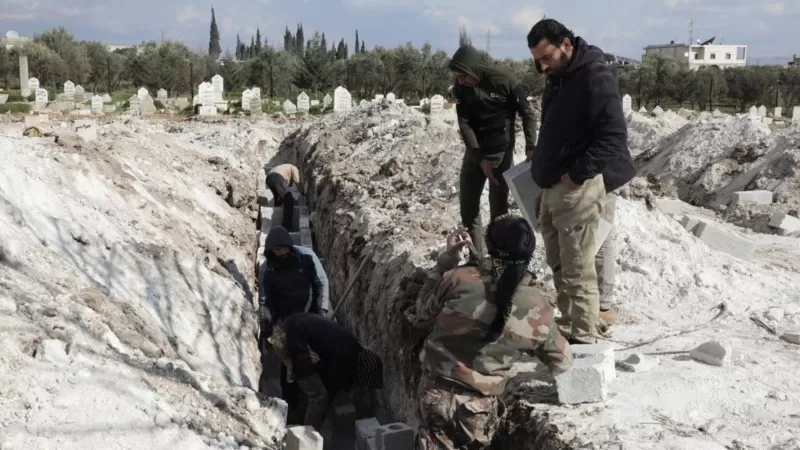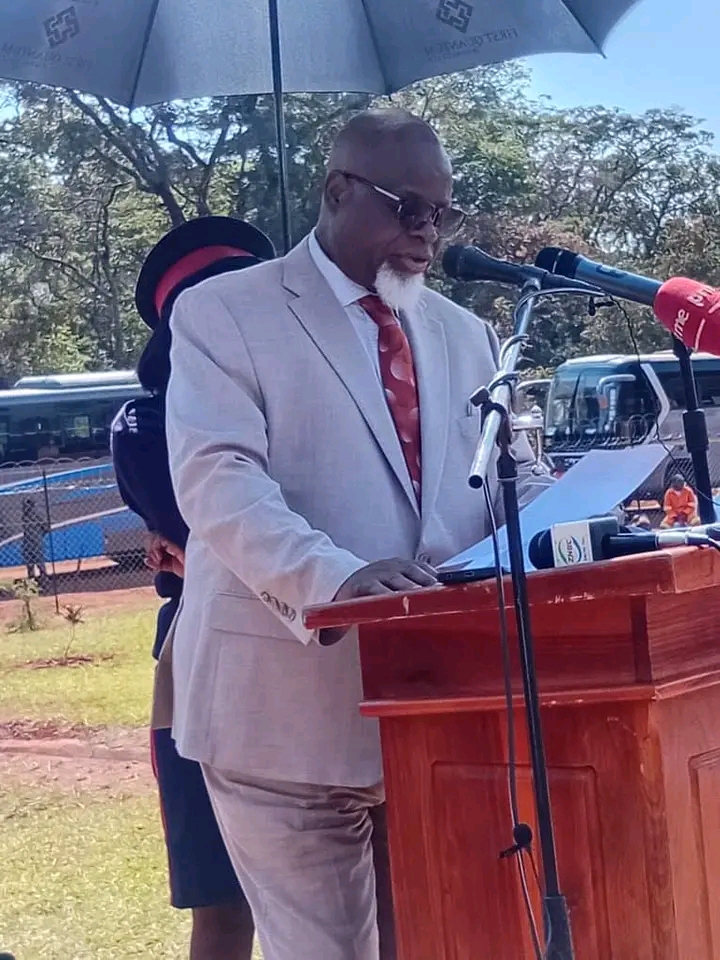A crisis within a crisis within a crisis – such is the blighted landscape of Syria, now reeling in the wake of a crushing earthquake and a decade and more of debilitating war.
The country’s seismic shock hasn’t broken entrenched conflicts and obstacles which have always obstructed urgent humanitarian action in a country ravaged by war.
But four days after a deadly earthquake struck, there’s a small crack which may widen the spaces for urgent humanitarian action.
“It’s a good step forward but many more are needed,” the UN’s humanitarian chief, Martin Griffiths, told the BBC after Syrian state media reported that the Syrian cabinet had given the go-ahead for the delivery of humanitarian aid to all parts of the country.
According to the Sana News Agency, that would include both state-controlled areas as well as those controlled by other groups.
The relief effort would be co-ordinated with the United Nations, the Syrian Arab Red Crescent and the International Committee of the Red Cross, it said.
But the news is also being treated cautiously.
Mr Griffiths stressed the announcement only meant aid could be delivered across Syria’s internal front lines – not across the border from neighbouring countries. “We are also urgently seeking approval for additional crossing points to meet the life-saving needs of the people.”
At present, there is only approved route into the north-western Syrian province of Idlib, the last rebel-held enclave: through the Bab al-Hawa crossing over the Turkish border.
Vital lifelines like this have to be authorised by the UN Security Council. Russia as well as China have repeatedly used their veto to support the Syrian government’s rock-hard rule that mechanisms like this violate its sovereignty.
The UN, among others, has repeatedly urged Syria and its allies to allow aid to flow into northern Syria from another route via Bab al-Salameh on the Turkish border, as well as a crossing from Iraq into the largely Kurdish areas of north-eastern Syria.
This week, Syrian opposition groups announced that they had secured Ankara’s approval, for the first time in years, to use corridors at Bab al-Salameh as well as another at al-Rai. Unlike the UN, other non-governmental aid agencies don’t require UN Security Council approval.
On Thursday, when the first UN relief convoy carrying blankets and other supplies finally rumbled through Bab al-Hawa, the reaction was bittersweet.
It was aid that was scheduled to come before the earthquake struck, lamented Syrian journalist Ibrahim Zeidan, who spoke to us from a town near the border crossing.
This route, badly damaged in Monday’s tremors, has long been the only source of sustenance for more than four million Syrians, most of whom rely on handouts to survive.
Most were displaced time and again, from one province to the next, in the early years of this conflict. Now people living with almost nothing have lost even that.
“The most earthquake-stricken area of Syria is in the north-west,” underlined Jan Egeland, Secretary General of the Norwegian Refugee Council. “We need full and free access across front lines, and full and free distribution.”
Aid sources point out that in the past, some humanitarian aid reaching opposition-held areas through government-controlled provinces was rejected. There’s also been a concern that aid could be diverted on the way.
“We hope both the armed opposition and the government will put aside politics,” Mr Egeland emphasised to the BBC, adding that what was really needed now was a humanitarian ceasefire.
He also expressed caution over the Syrian government’s apparent concession, saying similar statements had been made before – but not followed through.
The UN is now under mounting pressure to find new ways to override politics and establish new routes as concern mounts over the depth of suffering, as millions shelter in tents or on open ground in freezing winter temperatures.
This weekend, Mr Griffiths will travel to both Syria and Turkey “to show solidarity with the people of both countries”.








